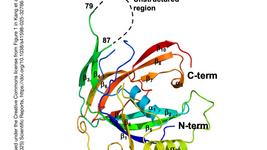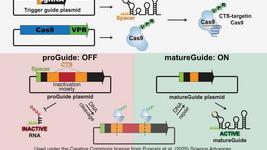TXNIP affects stress pathways without boosting metabolic cell function
In this study, researchers from Belgium have used CRISPR-Cas12a to generate TXNIP-deficient (TXNIP⁻/⁻) human embryonic stem cells (H1-hESCs). Subsequently, the stem cells were differentiated into hepatocyte-like cells (HLCs) and insulin-producing stem-cell-derived islets (SC-islets).
While TXNIP⁻/⁻ hESCs showed increased proliferation, they retained normal pluripotency and differentiation capacity. TXNIP loss led to reduced albumin production and impaired insulin signalling in HLCs but did not affect glycolysis or lipid metabolism.
Under ER stress, TXNIP⁻/⁻ HLCs exhibited transient reductions in stress markers such as phosphorylated eIF2α and BiP, indicating compromised adaptive responses. In SC-islets, TXNIP deficiency did not affect viability, cell composition, cytokine response, or glucose-stimulated insulin secretion. In vivo, both TXNIP⁻/⁻ and control SC-islets restored C-peptide secretion but showed no difference in glycaemic regulation.
Given TXNIP’s established contribution to diseases such as diabetes, neurodegeneration, and cancer via modulation of redox balance, apoptosis, and inflammation, these findings suggest that while TXNIP influences stress signalling, its absence does not enhance metabolic functionality in differentiated somatic cells. This work presents CRISPR-engineered TXNIP⁻/⁻ and TXNIP⁺/⁺ stem cell models for future disease mechanism studies.
The study was led by Mayank Bansal and Esteban Gurzov at Université Libre de Bruxelles, and it was published in Stem Cell Research & Therapy on 4 May.
To get more CRISPR Medicine News delivered to your inbox, sign up to the free weekly CMN Newsletter here.
Tags
CLINICAL TRIALS
Sponsors:
Base Therapeutics (Shanghai) Co., Ltd.
Sponsors:
Base Therapeutics (Shanghai) Co., Ltd.







